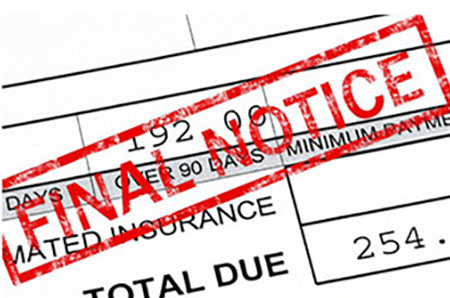It’s important to know what debt collection agencies can and cannot do. Knowledge is power, and that’s true for any situation. Not only can you use your knowledge of these laws to protect yourself from harassment, but if a collector violates one of these laws, you may be able to: use the violation to negotiate a better settlement, file a complaint with the Consumer Financial Protectin Bureau or the Federal Trade Commission, or sue the collector.
The FDCPA (15 U.S.C. §§ 1692 to 1692p) requires that a collection agency make certain disclosures and prohibits the collector from engaging in many kinds of abusive or deceptive behavior. Here are some collection actions prohibited by the FDCPA.
Communications With Third Parties – A collection agency can’t contact third parties about your debt. There are a few exceptions to this general rule. Collectors are allowed to contact:
- Your attorney. If the collector knows you are represented by an attorney, it must talk only to the attorney, not you, unless you give it permission to contact you or your attorney doesn’t respond to the agency’s communications.
- A credit reporting agency
- The original creditor
- Collectors are also allowed to contact your spouse, your parents if you are a minor, and your codebtors. But they cannot make these contacts if you have sent a letter asking them to stop contacting you.
Communications With You – A debt collector’s first communication with you must tell you that they are attempting to collect a debt and that any information obtained from you will be used for that purpose. In subsequent communications, the collector must tell you his or her and the collection agency’s name.
A collector cannot contact you:
- At an unusual or inconvenient time or place—calls before 8 a.m. and after 9 p.m. are presumed to be inconvenient
- Directly, if it knows or should have known that you have an attorney.
- At work if it knows that your employer prohibits you from receiving collections calls at work.
Harassment or Abuse – In general, a collection agency cannot engage in conduct meant to harass, oppress, or abuse. Specifically, it cannot:
- Use or threaten to use violence
- Harm or threaten to harm you, another person, or your or another person’s reputation or property
- Use obscene, profane, or abusive language
- Publish your name as a person who doesn’t pay bills list your debt for sale to the public
- Call you repeatedly
- Place telephone calls to you without identifying the caller as a bill collector
It’s important to know what debt collection agencies can and cannot do. Knowledge is power, and that’s true for any situation. Not only can you use your knowledge of these laws to protect yourself from harassment, but if a collector violates one of these laws, you may be able to: use the violation to negotiate a better settlement, file a complaint with the Consumer Financial Protectin Bureau or the Federal Trade Commission, or sue the collector.
The FDCPA (15 U.S.C. §§ 1692 to 1692p) requires that a collection agency make certain disclosures and prohibits the collector from engaging in many kinds of abusive or deceptive behavior. Here are some collection actions prohibited by the FDCPA.
Communications With Third Parties – A collection agency can’t contact third parties about your debt. There are a few exceptions to this general rule. Collectors are allowed to contact:
- Your attorney. If the collector knows you are represented by an attorney, it must talk only to the attorney, not you, unless you give it permission to contact you or your attorney doesn’t respond to the agency’s communications.
- A credit reporting agency
- The original creditor
- Collectors are also allowed to contact your spouse, your parents if you are a minor, and your codebtors. But they cannot make these contacts if you have sent a letter asking them to stop contacting you.
Communications With You – A debt collector’s first communication with you must tell you that they are attempting to collect a debt and that any information obtained from you will be used for that purpose. In subsequent communications, the collector must tell you his or her and the collection agency’s name.
A collector cannot contact you:
At an unusual or inconvenient time or place—calls before 8 a.m. and after 9 p.m. are presumed to be inconvenient
Directly, if it knows or should have known that you have an attorney.
At work if it knows that your employer prohibits you from receiving collections calls at work.
H Harassment or Abuse – In general, a collection agency cannot engage in conduct meant to harass, oppress, or abuse. Specifically, it cannot:
Use or threaten to use violence
Harm or threaten to harm you, another person, or your or another person’s reputation or property
Use obscene, profane, or abusive language
Publish your name as a person who doesn’t pay bills list your debt for sale to the public
Call you repeatedly
Place telephone calls to you without identifying the caller as a bill collector
Last Updated on April 18, 2017 by The Orlando Law Group








